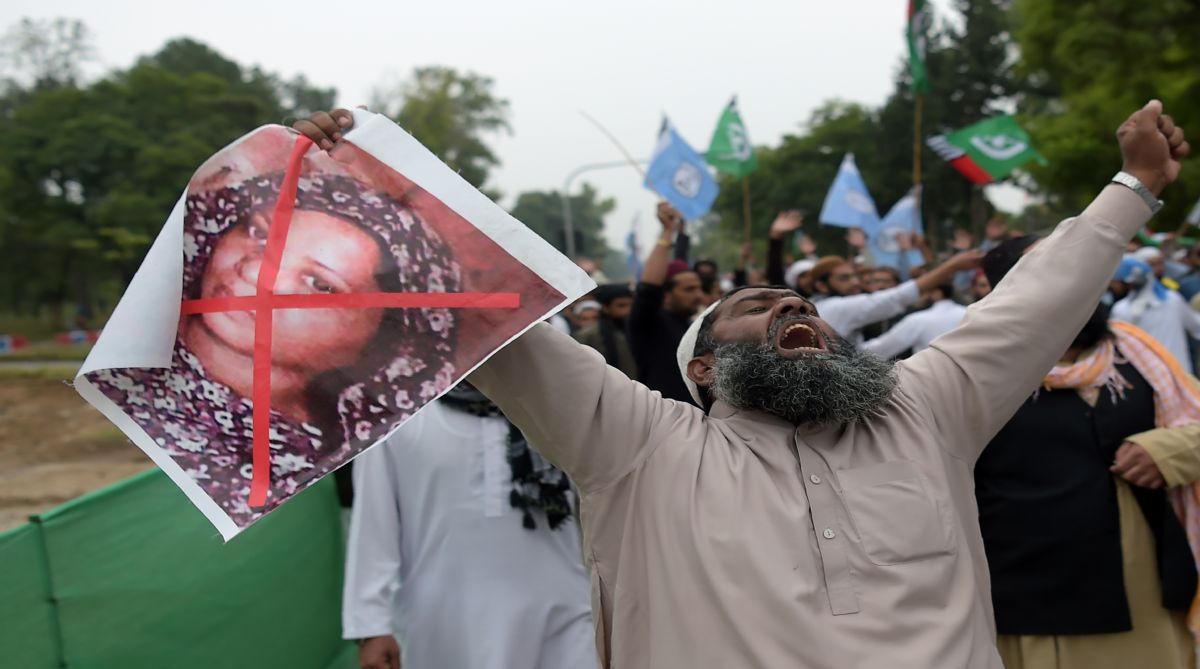A Pakistani court has refused to try for treason the Islamist leaders who organized mass protests to oppose the Supreme Court acquittal of Christian woman Asia Bibi in a blasphemy case, the lawyer who filed the petition said on Tuesday.
The lawyer, Syed Mohamed Aala Imran, told Efe news that the Lahore High Court judge on Sunday refused to take up the issue on the grounds that only the Supreme Court can hear cases of treason.
The judge said the Supreme Court was hearing a case of vandalism against those who participated in the protests after Bibi’s acquittal on October 31.
The complaint against Tehreek-e-Labbaik Pakistan (TLP) leaders Maulana Khadim Rizvi and Pir Muhammed Afzal Qadri along with Maulana Fazal ur Rehman, head of the Jamiat Ulema-e-Islam, was filed on Friday by a citizen.
The apex court ordered Bibi’s release after annulling the death sentence that was imposed on her in 2010 and ratified four years later by the Lahore High Court.
Protests organized by the TLP broke out nationwide almost immediately after the verdict, practically paralyzing Pakistan for three days.
On November 2, the government of Prime Minister Imran Khan reached an agreement with the TLP in which he agreed to allow the Islamist leaders to urge the judiciary to stop Bibi from leaving the country while the Supreme Court considered an appeal against her acquittal.
Bibi’s lawyer left Pakistan for the Netherlands last weekend. At a press conference in the Hague, he warned about threats to the life of Bibi, explaining how he was forced to flee as he had become a target for radical Islamists in the country.
Pakistan’s anti-blasphemy law was established in the British colonial era to avoid religious clashes. But in the 1980s, several reforms pushed by the-then dictator Muhammad Zia-ul-Haq led to its abuse.











